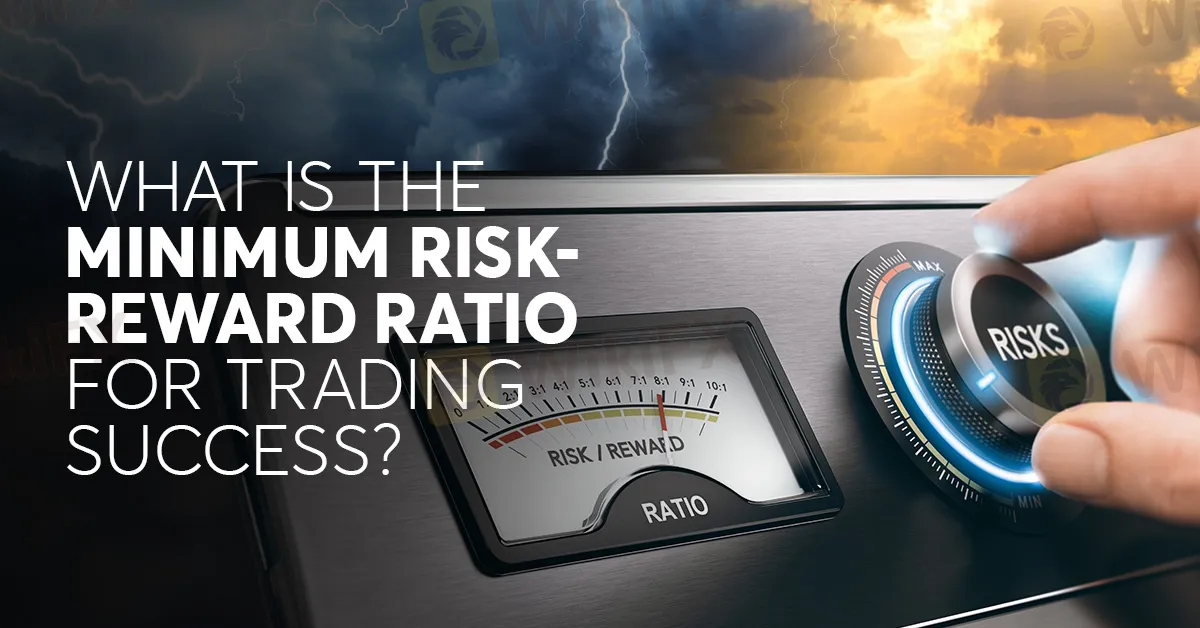简体中文
繁體中文
English
Pусский
日本語
ภาษาไทย
Tiếng Việt
Bahasa Indonesia
Español
हिन्दी
Filippiiniläinen
Français
Deutsch
Português
Türkçe
한국어
العربية
What is The Minimum Risk-Reward Ratio for Trading Success?
Abstract:What exactly is the minimum risk-reward ratio that traders should aim for to achieve success?

In the world of forex trading, success is often measured by the ability to navigate the intricate balance between risk and reward. Understanding and implementing an effective risk-reward ratio can be the cornerstone of a trader's strategy, determining the difference between profitability and losses. But what exactly is the minimum risk-reward ratio that traders should aim for to achieve success?
The risk-reward ratio is a fundamental principle that quantifies the potential profit against the potential loss in a trade. It represents the relationship between the amount a trader is willing to risk (stop-loss) compared to the potential reward (take-profit). A risk-reward ratio of 1:2, for example, means risking one unit to potentially gain two units.
While there isn't a one-size-fits-all minimum risk-reward ratio that guarantees success, a commonly recommended ratio is 1:2 or higher. Here's why:
Successful trading isn't just about making profits; it's about managing risk effectively. A favourable risk-reward ratio helps traders to mitigate losses and preserve capital. By setting a ratio where the potential reward is at least twice the risk, traders can maintain profitability even if they're right only half the time.
Consistency is key in trading. A sound risk-reward ratio provides a framework for consistent decision-making. It encourages disciplined trading, allowing traders to stick to their strategy without being swayed by emotions or impulsive actions.

Market conditions are dynamic, and volatility is inherent in the forex market. A risk-reward ratio of 1:2 or higher allows traders to adapt to varying market conditions. In highly volatile markets, a wider ratio might be more suitable to accommodate larger price swings.
While a 1:2 risk-reward ratio is often recommended, traders should consider their individual trading styles, risk tolerance, and the specific market they're trading in. Some traders might opt for a higher ratio, like 1:3 or 1:4, depending on their risk appetite and the prevailing market conditions.
Besides the risk-reward ratio, implementing effective risk management practices is crucial. This includes setting stop-loss orders, diversifying your portfolio, avoiding over-leveraging, and continuously monitoring and adjusting your strategy.
While aiming for a minimum risk-reward ratio of 1:2 is a prudent guideline, successful trading encompasses a multitude of factors beyond this ratio alone. It's essential to remember that trading involves inherent risks, and no ratio can guarantee success. Traders must combine their risk-reward ratio with a comprehensive strategy, market analysis, and disciplined execution to achieve success in the forex market.
Ultimately, each trader should find a risk-reward ratio that aligns with their trading goals, risk tolerance, and market conditions, acknowledging that adaptability and continuous learning are key to navigating the ever-evolving landscape of forex trading.

Disclaimer:
The views in this article only represent the author's personal views, and do not constitute investment advice on this platform. This platform does not guarantee the accuracy, completeness and timeliness of the information in the article, and will not be liable for any loss caused by the use of or reliance on the information in the article.
Read more

Top 10 Trading Indicators Every Forex Trader Should Know
Master the top 10 Forex trading indicators to analyze real-time Forex quotes, trends, and market signals. Learn strategies to boost accuracy and avoid mistakes.

Geopolitical Events: What They Are & Their Impact?
You've heard many times that geopolitical events have a significant impact on the Forex market. But do you know what geopolitical events are and how they affect the FX market? Let us learn about it today.

Why Do You Feel Scared During Trade Execution?
Trade execution is a pivotal moment for traders. It is when analysis turns into action, and potential profits or losses become reality. However, for many traders, this moment is accompanied by fear. Why does this happen, and how can you address it?

WikiEXPO Global Expert Interview: Simone Martin—— Exploring Financial Regulation Change
In the midst of financial innovation and regulation, WikiGlobal, the organizer of WikiEXPO, stays abreast of industry trends and conducts a series of insightful and distinctive interviews on pivotal topics. We are delighted to have the privilege of inviting Simone Martin for an in-depth conversation this time.
WikiFX Broker
Latest News
Geopolitical Events: What They Are & Their Impact?
Top 10 Trading Indicators Every Forex Trader Should Know
Why Do You Feel Scared During Trade Execution?
Currency Calculator


